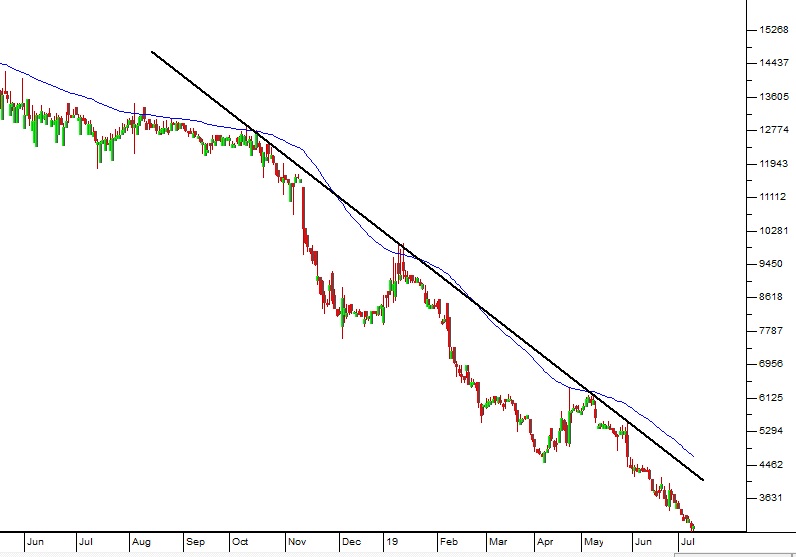Omnia
12 July 2019 By PDSNETOmnia (OMN) is at an interesting point. The share price has been falling since its peak of R242 made in September of 2014. It is currently trading below R30. This should be seen in the context of its net asset value (NAV) which was R105 on 31st March 2019. The question that private investors should be asking is, “Does this represent an opportunity?†On the face of it, this is a massive blue chip company which has fallen on hard times. But it has dominant positions in the three major markets which it serves throughout Africa:
- Agriculture – where it supplies fertilisers and related products.
- Explosives – where it supplies the mining industry with all elements of their blasting requirements.
- Chemicals – Where it supplies industry with a variety of chemicals and polymers.
- 90% of Umongo Petroleum. Umongo is a distributor of additives, lubricants, base oils and related products in sub-Saharan Africa. Omnia paid R780m for the company.
- 100% of Oro Agri for US$96m (R1344m at R14 to the US$). Oro Agri is an international company involved in researching and distributing a range of products including biostimulants, adjuvants, crop protection products, liquid foliar fertilizers and soil conditioners for large scale agriculture applications.
- The weakness of the rand
- Problems in Zimbabwe with the introduction of a new currency
- Drought conditions in various parts of South Africa
- Difficulties in the mining industry due to the 3rd Mining Charter
- The depressed state of the South African economy.

Omnia (OMN) May 2018 to July 2019 - Chart by ShareFriend Pro
DISCLAIMER
All information and data contained within the PDSnet Articles is for informational purposes only. PDSnet makes no representations as to the accuracy, completeness, suitability, or validity, of any information, and shall not be liable for any errors, omissions, or any losses, injuries, or damages arising from its display or use. Information in the PDSnet Articles are based on the author’s opinion and experience and should not be considered professional financial investment advice. The ideas and strategies should never be used without first assessing your own personal and financial situation, or without consulting a financial professional. Thoughts and opinions will also change from time to time as more information is accumulated. PDSnet reserves the right to delete any comment or opinion for any reason.
Share this article:
